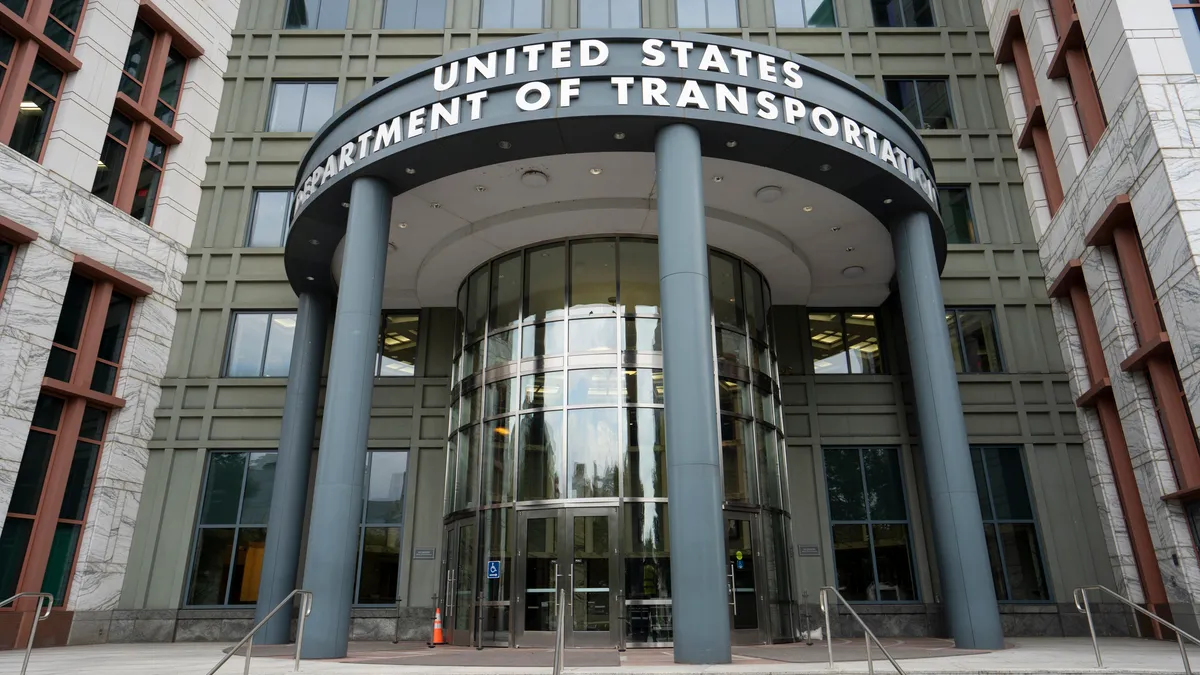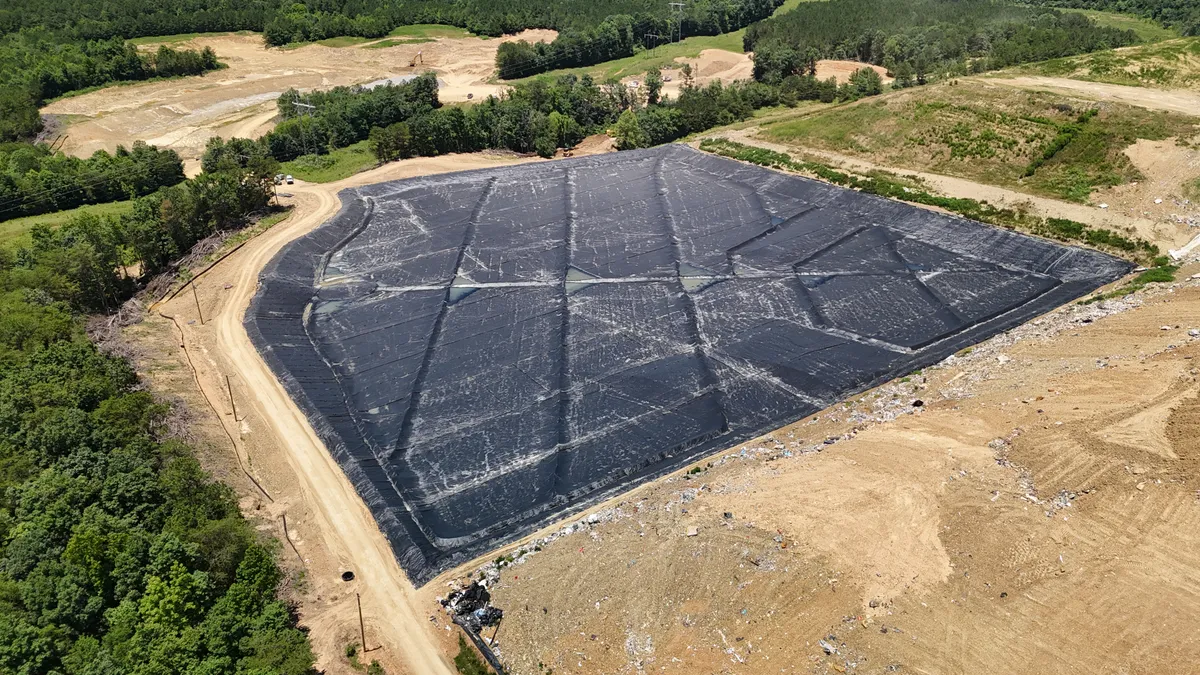The average person not only wants to pay as little as possible for trash collection, but also wishes to simply roll the waste bin to the curb and have it disappear. Those same consumers do not like interruption of services, changes, or surprises.
Aligning with these expectations is difficult, regardless of the size of the collection company, and it makes keeping a squeaky clean reputation in the trash business challenging — especially when it means appeasing tens of thousands or millions of customers.
So what is the key to keeping customers happy? Waste Dive took a look some of the industry's biggest companies to assess critical areas that impact the business of customer service:
- Direct communication
- Route-tracking technologies
- Smooth transitions
- A wealth of service options
Building a relationship on trust and clear communication
"The biggest issue we face is consistently giving good service," said Levi Gallegos, sales manager of Fort Collins, CO-based Gallegos Sanitation Inc. (GSI). "If you promise 24-hour delivery it needs to be there, despite trucks breaking down or a mud hole after a snowstorm."
The company's sales pitch is more about relationships than what's in the contract. GSI sets parameters for review dates, and when contracts come up for renewal the sales staff calls customers or meets with them face to face.
"We go over services and ask if there is anything we can do to improve. When we make that call, and it's not just to get the contract, it’s amazing how quickly they come back and sign," said Gallegos.
Casella Waste Systems also sees the values of being transparent and communicative with its customers. One of the biggest challenges the waste company ever faced came in 2011, when Hurricane Irene hit New England, particularly Vermont, extremely hard. Dozens of communities that Casella serves were cut off due to flooding.
"With more than 500 miles of roads and highways destroyed, serving customers (and getting many of our employees to work) was an unprecedented challenge. It took an immense amount of operational creativity and focus to solve transportation and collection problems, and to get temporary containers for cleanup to our customers," said John W. Casella, chairman and CEO.
With changes or interruptions that are not further challenged by broken phone lines lines or shut down roads, promptly reaching out to the community is more manageable.
"We want to give our customers clarity about what is happening as far in advance as possible to reduce the need for them to call us because they don't know what's going on. We have found using a global telephone messaging system to be very helpful," said Casella.
He went on to explain that keeping field staff and the customer care center in constant, strong communication is a focus of the company. "Everybody being informed is crucial to minimize the impact on, or potential frustration for, the customer," said Casella.
The advantages of tech-savvy in-cab cameras
Technology, especially GPS tracking, has proven to be nearly as powerful as human touch in the industry. As a way to stay on top of its fleet, GSI takes pictures of every service stop — that's 40,000 of them every week.
"If we get a call that a truck was driving 45 miles per hour through a neighborhood, I can back play his whole route and pinpoint how fast he was going, where, and when. We sit the driver down and show him live time from the GPS feed and say, 'Hey buddy you have to slow down'," said Gallegos, adding that GPS also ensures workers do not bill for invalid charges.
The cameras also curb finger-pointing over missed pickups when customers see the images showing their trash was not out. The documentation usually clears up discrepancies and with no bad feelings, as the company often returns the first time for free, thereafter applying a $15 return fee. The camera has even enabled GSI to indirectly step in as mediator among residents while resolving billing confusions.
"Residents have put extra bags next to their neighbor's poly cart to avoid a $3.50 charge for each additional bag. We've been able to send pictures to show this," said Gallegos.
Becoming the new hauler on the block
Taking over a waste management contract in a new town can be a challenge for both the service company and the consumer. As seen in cities like Macon, GA, shifting service providers can cause confusion, missed pickups, and overall chaos.
An announcement letter introducing a new waste management company is helpful, particularly when companies place the rationale in the context of improving and "resetting" service. GSI prepares staff to work with customers who not only had a bad experience, but are leery of change.
"We train staff to respectfully answer questions like, 'Why did my rate go up?' We let customers know the cost for a new fleet and our safety program that every new hire goes through ... We tell them our drivers are trained and drug tested so they are getting more bang for their buck," said Gallegos.
Giving customers what they want: convenience and options
In today's on-demand society, consumers are used to getting what they want, when they want it. That's why companies like Rubicon Global are stepping up to ensure customer happiness through on-demand services. Rubicon offers customized waste collection via an Uber-like platform using a Smartphone app. This on-demand pickup model enables customers to request collection as they need it.
Other convenience-based apps, such as Rollout! Houston, provide users with trash schedules and has an alarm setting to schedule reminders.
Aurora, IL rolled out a new trash and recycling program supported by Republic Services last July, providing five waste collection options depending on need and budget. The transition was rocky as customers and hauler met surprises, but once the kinks were straightened out, people were happy with the wealth of options. As one resident told the Chicago Tribune, "The whole city looks better ... and is better."
Even Republic Services at-large is in the midst of revamping its customer service infrastructure to fine-tune its direct communication line, investing $20 million in three customer resource centers. The new customer engagement model is intended to utilize high-tech investments for better communication with customers, while the consolidation of the call centers should help maximize operational efficiency.
Mending wounds with a little extra cash
Not long ago, irate business owners in Oakton, CA crowded city hall steps, recycling bins in tow to protest skyrocketed composting fees. For Waste Management, settling this debate meant going back to the negotiating table.
A satisfactory medium, if it leaves a little more in customers' pockets, can work as an act of good faith. Some cities provide waste diversion discounts, crediting customers' bills for recycling and composting. Waste Management recently spent some cash to do just this in Indian River County, FL where the company's community affairs manager, Amy Boyson said point blank, "We did not meet our customers' expectations, or ours, for timely, professional service."
The company put one-month credits in residents' garbage bills and pledged $25,000 to the county's United Way chapter.
Ultimately, said Casella, "Your integrity is your best customer service tool."
In cases where customers want something more or different, he said, "Be honest, and do your genuine best to fix things."






















